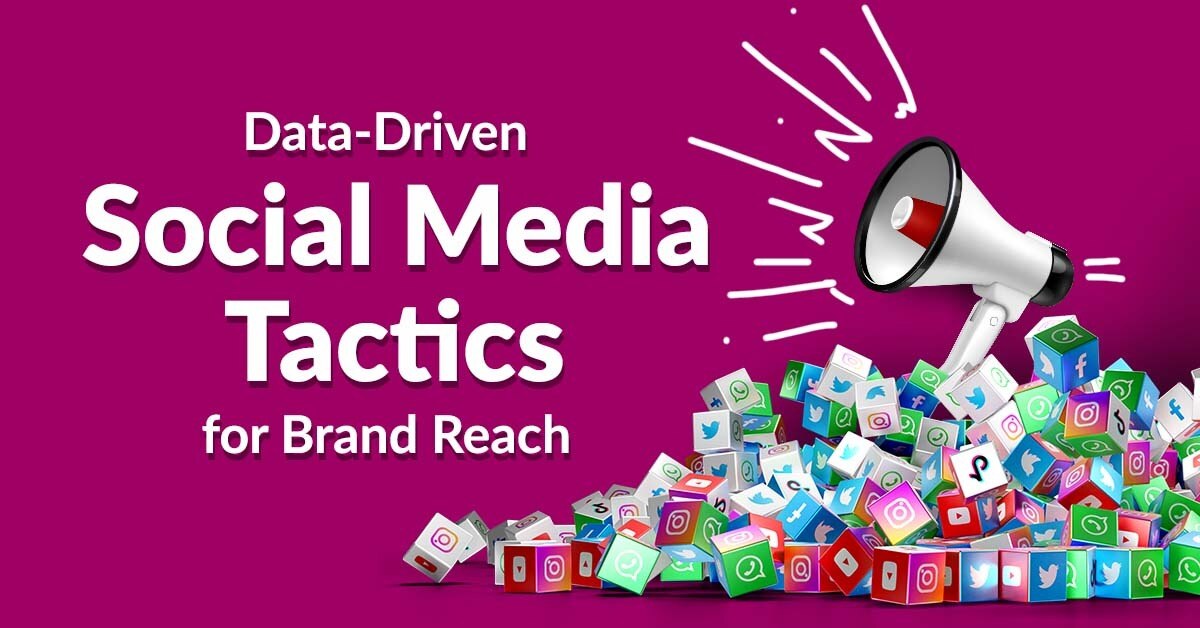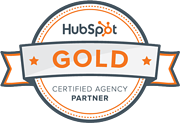Data is the backbone of social media marketing that works.
For brand managers in the hospitality industry, leveraging data helps you refine your social media strategies. Most importantly, it helps you make meaningful connections with your audience.
Without it, you might feel like you’re throwing darts in the dark. Just hoping that one hits the target.
Luckily, data gives you a clear picture of what works and what doesn’t. With these insights in hand, you can craft campaigns that attract potential guests, build loyalty — and even encourage direct bookings.
A social media expert can help you make the most of these insights and optimize your strategies for greater success.
Let’s take a closer look at some actionable ways you can use data to extend your hospitality brand’s reach.
1. Use data from your social media quiz results to find potential guests and tailor your content strategy
Social media quizzes are a powerful tool to engage users and gather data about their preferences. You could also find people who are ready to book! Or potential guests who’d like to join your email list for updates.
If you run a boutique hotel chain, one of your multiple-choice quiz questions might be …
“What’s Your Ideal Cozy Stay?”
It might have answer choices like:
- A cozy room in a historic neighborhood with artisanal coffee shops nearby
- A serene countryside retreat with access to nature trails and yoga classes
- A chic, design-forward suite in the heart of downtown’s art district
With quiz insights like these in hand, you can craft ultra-tailored campaigns that speak directly to your audience’s desires.
Hotel business intelligence software can enhance this process by segmenting your audience and tracking campaign performance. For example, you could test two ad variations for each customer segment. (And use the data to refine your messaging and visuals.)
You might try quiz headlines like “Your Dream Getaway Awaits” versus “Discover Hidden History” to identify the most engaging tone.
You might also compare pictures like cafes on old streets with your hotel’s charming rooms to see which option is more popular with your audience.
Speaking of images …
2. Use data from Instagram Stories to uncover the most engaging visuals
Use data to guide the visuals you post in your Stories.
Analyze metrics like tap-through rates, sticker interactions, and replies to see which visuals get the most attention.
For instance, if behind-the-scenes (BTS) footage of your chefs gets more engagement than scenic shots, double up on this type of content. Consider posting BTS content daily. Or dedicate one day a week to it to give users something steady to look forward to.
You can also learn which guest experiences are worth covering in your Stories. This is a great way to create emotional connections with your audience.
For example, you might test photos of a couple celebrating their engagement at your hotel’s rooftop bar. Or videos of guests laughing with friends during a hands-on cooking class led by your renowned chef.
3. Use data from social media channels to uncover peak engagement times
Timing is everything in social media marketing. Use analytics tools to see when your audience is most active on your social platforms. (If your audience engages the most during evenings, schedule posts at these times to maximize visibility.)
For example, if you target business travelers, you might find LinkedIn mornings more effective. If you target families, you may see better results with Instagram posts in the afternoon.
Data lets you plan your social media posts for when your audience is likely to interact. This helps you reach more people and encourage engagement.
4. Use data from user-generated content to uncover trends in guest preferences
User-generated content (UGC), such as tagged photos, mentions, or videos, is a goldmine for understanding what guests love about your property.

Analyze recurring themes in these posts. (Like mentions of rooftop views or signature cocktails.) If most guests post about your poolside amenities, you’ll know this is a selling point worth highlighting in your marketing strategies.
An added bonus? You’ll have UGC you can reshare to build trust with your audience and shorten the sales funnel.
When you share UGC you:
- Strengthen your social media presence and authority
- Show potential guests more authentic experiences
- Encourage direct bookings
You can also sprinkle UGC content in your other marketing campaigns — think email, ads, etc. — as well as on your website to build trust across all fronts.
5. Use data from online reviews to uncover customer sentiment
Online reviews reveal how guests truly feel about their stay. Analyze recurring praises and complaints to understand customer sentiment. Text analytics tools can help you efficiently process large volumes of reviews, extracting meaningful insights about customer emotions and satisfaction levels.
For example, glowing reviews about your breakfast buffet can inspire social media posts showcasing it. And increasing concerns about parking availability might finally encourage you to build those spaces you’ve been putting off. (Don’t forget to announce this to your audience when you do!)
Addressing feedback publicly also shows that you value guest experiences. You can use a review management tool allows you to organize and track the feedback, making it easier to respond quickly.
Share positive reviews on social media to build trust and encourage bookings. At the same time, respond to criticisms publicly (and professionally) to show that you’re proactive about guest satisfaction.
6. Use data from influencer campaigns to uncover which social media influencers drive direct bookings
Influencer marketing works even better when it’s data-driven. After collaborating with social media influencers, analyze metrics like referral traffic, booking conversions, and engagement rates to see who delivers results.

For instance, if an influencer specializing in luxury travel drives more direct bookings than one with a larger, general audience, focus your efforts on similar partnerships.
Use this data to refine your influencer marketing strategy and maximize your ROI.
*Pro-Tip: Consider signing up for free trials to test out different influencer marketing platforms. These tools come with built-in insights and influencer campaign tracking, so you can easily see which ambassadors and strategies perform best.
7. Use data from virtual tour engagement to uncover areas of interest for potential guests
Links to virtual tours from social media posts give potential guests an immersive preview of your property.
These campaigns also give you rich engagement data. You can analyze insights to uncover which areas of the tour generate the most interest.
For example, if viewers spend more time exploring your spa, prioritize showcasing this space in your social media content. Take this up a notch by annotating the image with a positive testimonial.
Say you decide to post a professional bird’s eye view image of your snow and sun sauna.
You might also layer a quote on top like:
“I swear Serenity Lodge’s Snow and Sun Sauna melted years of stress away. I can’t wait to go back with my best friends next month!” -Shelley Jones from Hot Springs, Arkansas.
8. Use data from ad campaigns to build more strategic social media funnels
Social media ad campaigns produce a wealth of data — from click-through rates to audience demographics and behaviors.
Analyzing this data helps you refine your ad strategies and create more effective sales funnels.
For example, if a campaign promoting weekend getaways shows high engagement among young professionals, you could build a retargeting funnel specifically for that group.
Or if your Instagram ad featuring breathtaking sea views has a 5x return on ad spend (ROAS), you could allocate more budget to similar campaigns. You could also create follow-up ads that showcase related experiences. (Think guided beach hikes and a glamping-inspired beach breakfast or private dining with stunning skyline views) Be sure to also test funnel-based ads so you can learn which ones cater best to each part of the buyer’s journey.
Consider creating:
- Awareness ads that highlight your property’s unique features and location
- Consideration ads showcasing user-generated content and guest testimonials
- Conversion ads, such as direct booking offers — think exclusive discounts for new guests, package discounts for families and groups, and free upgrades for honeymooners
Refine each of these as you uncover what’s working.
PS: Need help with social media PPC ads? We’re the experts you’ve been looking for. ASK FOR A FREE PROPOSAL NOW.
Wrap up
Data is your most powerful tool for growing your brand’s reach in the hospitality sector. It helps you craft social media marketing strategies that attract potential guests, drive engagement, and foster loyalty.
Our advice?
Start by analyzing the wealth of data at your fingertips — from quiz results to online reviews. Look for patterns, high conversions, and high engagement rates. Use these insights to strategically refine your social media marketing efforts.
For good measure, here are the specific tips we recommended in this guide:
- Use data from your social media quiz results to find potential guests and tailor your content strategy
- Use data from Instagram Stories to uncover the most engaging visuals
- Use data from social media channels to uncover peak engagement times
- Use data from user-generated content to uncover trends in guest preferences
- Use data from online reviews to uncover customer sentiments
- Use data from influencer campaigns to uncover which social media influencers drive direct bookings
- Use data from virtual tour engagement to uncover areas of interest for potential guests
-
Use data from ad campaigns to build more strategic social media funnels
Ready to see the difference data-driven strategies can make for your brand? SevenAtoms specializes in strategizing, implementing, and optimizing ads across platforms like Facebook, LinkedIn, Google, and Bing.










